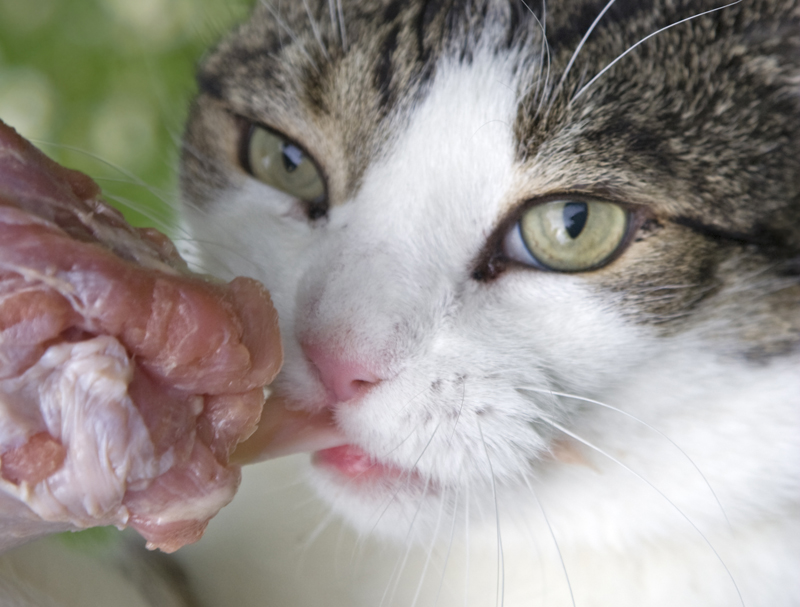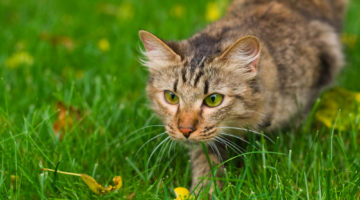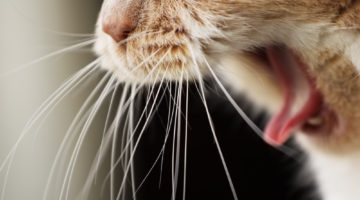Taurine is an important amino acid that’s crucial to your cat’s health and longevity. Here’s how to make sure your kitty is getting enough.
When they first got married, my parents adopted a bob-tailed tabby named Archie. He loved to eat liver. At the time, Mom and Dad didn’t know anything about feline nutrition…so liver is all they gave him. Not surprisingly, Archie was only a few years old when his health declined and he died. They didn’t know what had killed him, but I’d be willing to bet it was a severe nutritional imbalance brought about by his all-liver diet.
Like my parents, you may think you’re doing your cat a favor by only giving her the foods she loves best, but in reality, you risk depriving her body of certain nutrients, a lack of which can lead to allergies and imbalances at best, and serious illness and a shortened lifespan at worst. One of the most important nutrients for feline health and well being is taurine. It’s an amino acid especially vital to a cat’s eyesight and heart. Without enough taurine, a cat will eventually develop central retinal degeneration resulting in blindness, as well as dilated cardiomyopathy and heart failure.
The problem is, the feline body isn’t capable of producing this amino acid naturally, the way ours or a dog’s does. “Before pet food manufacturers added it to their prepared foods, thousands of cats died of heart failure due to taurine deficiency,” write Celeste Yarnall, PhD and Jean Hofve, DVM in The Complete Guide to Holistic Cat Care (Quarry Books, 2009). “They found out the hard way that cooking destroyed taurine’s bioavailability.” Nowadays, pet food companies add taurine to their products, but there are still things you need to know about this key amino acid.
Taurine is found naturally in a mother cat’s milk and alsoin whole muscle meats, hearts and brains, seafood, eggs and dairy products. Conversely, it’s not found in cereal grains, vegetables, soy and other plants. This is one reason why cats can’t be vegetarians – they literally need a meat-based diet in order to survive.
In other words, it’s up to you to ensure your cat is getting enough taurine in her diet. If you are feeding her a premium packaged food, the manufacturer has already added it to the product so you don’t need to worry. Complete premium frozen raw diets also contain adequate taurine. If you home-prepare your cat’s food, though, you need to make sure you’re adding enough taurine to the mix.
“Although meat contains taurine, levels vary greatly across different meat sources and even within parts of the same animal,” writes Sandy Arora in Whole Health for Happy Cats (Quarry Books, 2006). “For instance, pork contains more taurine than chicken, and chicken legs contain more taurine than other parts of the bird, such as breast meat…. Even when cats eat a raw meat-based diet, normal digestive processes still degrade taurine production. It is better to err on the side of caution and give your cat at least 250 mg of taurine per day. If you cook the meat in your cat’s diet, you’ll need to compensate even more for taurine loss by giving 500 mg daily.” You can buy taurine supplements at the health food store – it’s always a good idea to consult with a holistic or integrative vet before starting any new supplement.
Like so many others, my family has learned a lot about nutrition for cats over the last few decades. And when it comes to essential nutrients like taurine, knowledge is definitely power.







No Comment